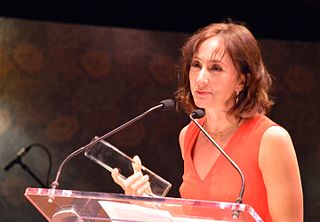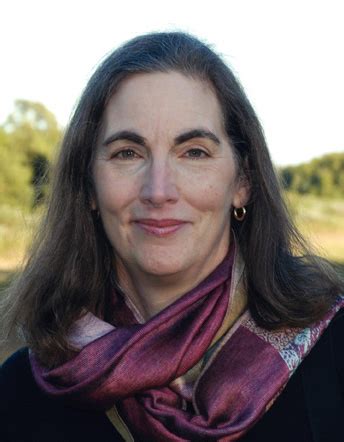A Quote by Michael Shannon
I've known a lot of very religious people. My mother is very religious, but she was also very - is very private about it. She - when I was growing up, she never went to church. She just prayed and read her Bible and kept it to herself. So I'm not from a background of flamboyant believers. It's much more a personal issue.
Related Quotes
I've known Carolyn [Maloney] for years, by the way. I knew her when she was on the City Council and knew her when she was - when she was running, and we endorsed her very early when she ran for Congress, yet I didn't know some of the stories in here of herself and her struggle, and - and she makes a very - you know, it's - it pulls your heart as well as - but it's very practical.
A lot of people say that Eleanor Roosevelt wasn't a good mother. And there are two pieces to that story. One is, when they were very young, she was not a good mother. She was an unhappy mother. She was an unhappy wife. She had never known what it was to be a good mother. She didn't have a good mother of her own. And so there's a kind of parenting that doesn't happen.
As a woman, she [Penelope Cruz] obviously has changed as she has become an adult. But, as an actress, I actually might say that she has not changed that much. And she has something great, especially in comedy, and she hasn't been exploited as much as she could be in comedy, but particularly in that mix between comedy and drama. She's got a very special quality about her. You can place her in very extreme situations, especially very painful situations, in terms of how her character interprets it. And sometimes, the deeper and more human that pain is, the better she is at it.
Sarah Palin kept talking and talking, and the more she talks, the less compelling she can be. People say, "She's a very good politician, very deft at what she does," and whatever. And I hear that sometimes and go, "I don't know much about this stuff, but I would say no." Because the really good politician expands the audience, not contracts it. She may be getting a very vocal crowd, but it's a very specific group.
I noted about Cate Blanchett was her very positive lack of concern for how she turns out in Cinderella. She is happy to be a villainess and very pleased to be encouraged as I did with her to reveal this backstory and feel as though this was very human, that this broken heart of hers, if you might regard it that way, would be visible, but she never played for sympathy and I really admired that about her, so she's just there, she just is and uncompromisingly.
Just like Marilyn Monroe is a lot of girls' idol, that's how I feel about Dorothy Dandridge. And she any Marilyn were very close friends. She went through a lot, and people told her that she couldn't do certain things, but she didn't let that bother her. She said in her mind that she was going to do them and that nothing was impossible, and she did it. It was so sad... She died from drugs, and drinking as well.
My daughter [Ariana], she's a sweet, lovely girl, but she doesn't have the drive or the belief in herself. As it says in the film, I get touched up thinking about it, no one can give you a career. You have to have that inner drive. She wants it, but she doesn't know how to go for it, she's too shy. To see her perform and come on stage and feel comfortable, you know, she has talent - that was very touching, very moving, for me. She has a really beautiful sound and voice. She's a young girl still, 26, and innocent. She was kind of sheltered.
I think that, very often there's a pain that's just too painful to touch. You'll break apart. And I think her mother's death and disappearance and abandonment was something she just never could deal with. Eleanor Roosevelt, when she's really very unwell in 1936, she takes to her bed. She has a mysterious flu.
I don't think she [Marilyn Monroe] saw herself as victimized and a sex object. She knew how to contend with it. I'm sure she was no fool about it. On the one hand, it was very flattering and great; on the other hand, it was probably awful and could be very lascivious and very terrible. But I think a lot of women just wanted to be like her. And that's still true today.


































